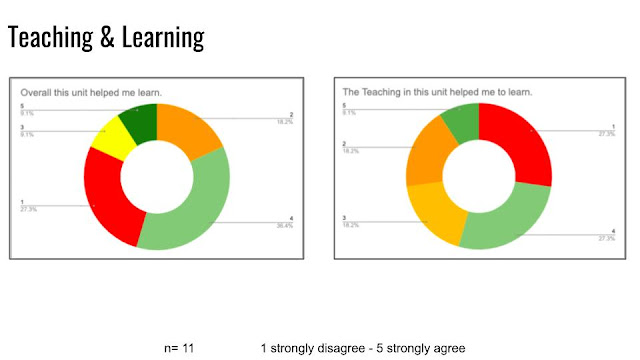Feedback matters. Research from Rick Straub to John Hattie and Shirley Clarke and more confirms the importance of clear and timely feedback. I am really excited about shifts in my feedback practices. Let me nerd out a little bit about it, would you?
Looking back, much of the feedback I received as a learner was a one-way: from teacher to learner. Rarely did my teachers or professors step out of what Straub defines as "conventional roles of examiner, critic and judge" (92). Even with the growth and development of the writing process approach of the late 1970s and the establishment of writing workshop approaches since Atwell first released In the Middle in 1987, corrective or error-focused feedback was a common practice in public schools and universities. More than ever, teachers take on roles of "reader, coach, mentor, fellow inquirer or guide" as they respond to learners. My professor, Rick Straub certainly did as did all of the graduate assistants he trained to work at the Florida State University in late 80s, early 90s. That role shift grounds me. When I respond to a writer as a "reader or fellow inquirer," feedback becomes a "conversation, a give-and-take dialogue" (Straub). The give and take, the seeking and receiving of feedback from learners. That's key.
During the 20-21 school year, I used Google forms to ask leaners about teaching, learning and assessment practices at the end of units. In the past, I gathered feedback from students via conversation and reflective writings. However, those writings were often done at the end of a quarter or at the end of the year.
Now, I see how that timing of our reflections didn't maximise instructional potential. The feedback I got at the end couldn't really be acted on (until the next year or next group of learners). Feedback is powerful in the moment and beyond. One true power of feedback is how we receive and respond to it.
I've been exploring a variety of ways to gather that feedback: surveys, conferences, written reflections, emails. Now in my classroom, once I've receive feedback, I feed it back to learners to process and discuss openly. We look for patterns and trends and I share my own thinking about next steps I might plan to meet learners' needs.
It's about learning and learners. In learning spaces where I teach or facilitate, learners are at the heart of it all. For me, it's key to listen to learners and use that feedback to plan instruction that matters to them.
Today I shared feedback from our last unit. Our PLC's last unit focused on close reading and analysis of prose using The Great Gatsby. Remember the conversation I captured during the summative assessment just before spring break?
When I shared the feedback back to the class today, a student exclaimed, "Wow!"
When I probed further, the student said that the feedback didn't look good. It looked like people who responded had not learned as much as they had in previous units.
That's an accurate interpretation of learners' perceptions. I gave the class time to process both the donut charts and the raw spreadsheet data.
Then they talked at their tables. Each group nominated a scribe and made their thinking visible on a shared document (linked below).
 |
It was 20 minutes well spent. Learners say that need individual conferences and more feedback. When we talked about it after they'd examined the data, one student mentioned that maybe our interruptions this quarter or during this unit made things feel disconnected.
What matters most to me is listening to learners. Listening, reflecting and responding to what they need. The wondering, reflecting and processing nurtures my curiosity and gives me energy.
Four moves I've planned for our next class are to:
- review our upcoming the assessment cycle for our unit on speaking and listening
- clarify steps we've already taken to build discussion skills this semester
- highlight feedback and reflection points we've already completed
- be clear about how our PLC translates rubric descriptors into letter grades
It's about the learners. It's about all of us learning together. Success ahead, I'm sure!
References
Atwell, Nancy. (1987). In the Middle: Portsmouth, NH: Heinemann.
Hattie, John and Shirley Clark. (2018). Visible Learning: Feedback. Routledge.
Straub, Richard. "Students' Reactions to Teacher Comments: An Exploratory Study." Research in the Teaching of English Vol. 31, No. 1 (Feb., 1997), pp. 91-119 (29 pages). Urbana, IL: National Council of Teachers of English.




I'm fascinated by the way you used the data to enter into a discussion about feedback, LeeAnn. You gleaned a lot of information from listening to your learners.
ReplyDeleteThis is a wonderful example of meaningful feedback that allows change. You show to your learners why and how reflection is actually useful and necessary, and how seeking feedback is a step for growth and improvement. This was a good piece to read before the school starts.
ReplyDelete